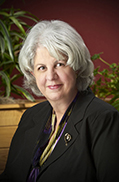Reporting Laboratory Errors Without Fear
Employees being able to report laboratory errors without fear is a key component of an effective error management system. This presentation will focus on the necessity for making the system useful and easy to use. Case studies are used to discuss a variety of errors and to illustrate how identification of errors can lead to practical solutions in error prevention. A just culture vs. punitive culture will be addressed along with ideas for getting employee “buy-in”. Additionally, strategies for mentoring and coaching employees with high error rates will be provided.
Originally presented on February 10, 2014, in Salt Lake City, Utah.
Lecture Presenter
 | Lucinda Manning, BA, MT(ASCP), RN Assistant Vice President, Blood Services |
Ms. Manning has over 20 years experience in laboratory management and over 35 years experience in the clinical laboratory. She had been a member of CLMA for many years and served in the past as president of the Utah Chapter. She is a member of the American Association of Blood Banks. Ms. Manning received her B.A. degree in biology from Capital University in Columbus, Ohio and is certified by the American Society of Clinical Pathologists in Medical Technology.
Ms. Manning is a registered nurse holding licenses in Ohio and Utah. Her nursing experience has been in the areas of critical care hospital nursing and hospice care. She uses this knowledge to actively interact with nursing staff. Ms. Manning is very active with the nursing staff education and audits regarding patient identification and blood administration.
Objectives
After this presentation, participants will be able to:
- Identify components of an effective Error Management Program.
- Improve event investigation and action processes.
- Identify ways to foster an error reporting culture without fear.
- Explore strategies to coach employees with high error rates.
Sponsored by:
University of Utah School of Medicine, and ARUP Laboratories
 Site Search
Site Search






